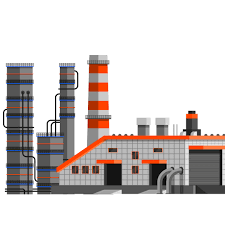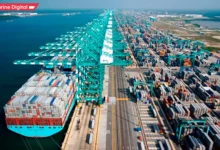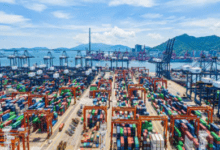
10 Factors that Influence Localization of Industries in Nigeria
Factors that Influence Localization of Industries in Nigeria – Nigeria, a nation in West Africa, is well-known for its abundant resources and human capital, which attracts a wide range of industries. Infrastructure, raw material accessibility, market accessibility, and governmental policies are a few of the variables that affect how localised industries are in Nigeria. The success and long-term viability of Nigerian enterprises are significantly influenced by these variables.
The physical and technological systems that enable the industry to function are referred to as infrastructure. In Nigeria, recruiting and sustaining enterprises depends on good infrastructure. An industry, for instance, needs dependable communication, transportation, and energy networks to operate well. On the other hand, the localization of industries also heavily depends on the availability of raw materials including agricultural and mineral products. Some areas of Nigeria are abundant in natural resources, which attracts businesses that rely on such resources. For industries to efficiently offer their goods and services, access to markets is also crucial. Finally, government policies have a big influence on how industries are localised in Nigeria. Tax incentives and reduced regulations are two examples of policies that might assist sustain and draw in new industries.
👉 Relocate to Canada Today!
Live, Study and Work in Canada. No Payment is Required! Hurry Now click here to Apply >> Immigrate to CanadaRead Also: 15 Factors Affecting National Consciousness In Nigeria
What is Localization?
The practice of adjusting a service, program, or piece of information to a particular locale’s linguistic, cultural, and other distinctive needs is known as localization. To conform to local laws, regulations, and customer behaviour, this procedure entails translating the text, updating the visuals and icons, and occasionally even changing the features or functions. In addition to helping to increase brand awareness and client loyalty in new regions, localization ensures that a product is available to and relevant to a worldwide audience.
What is an industry?
A component of the economy is referred to as an industry if it generates a certain kind of goods or services. Various types can be used to categorize industries, including:Factors that Influence Localization of Industries in Nigeria
-
Agriculture:
This sector of the economy is responsible for raising crops, animals, and other agricultural goods.
-
Manufacturing:
This sector of the economy entails the creation of products using machines and raw materials.
Retail, healthcare, and hospitality are just a few examples of the services that are provided to customers in the service industry.
Read Also: 10 Factors That Influence Education in Nigeria
-
Energy Industry:
This sector is responsible for producing and distributing energy from sources such as oil, gas, and renewable energy.
👉 Relocate to Canada Today!
Live, Study and Work in Canada. No Payment is Required! Hurry Now click here to Apply >> Immigrate to Canada-
Technology Industry:
This sector of the economy is responsible for the creation and manufacturing of goods and services related to technology, including computers, software, and telecommunications.Romantic Love Messages
-
Financial Industry:
This sector of the economy deals with the delivery of financial services like investing, insurance, and banking.
-
Construction:
This industry is responsible for building and maintaining many types of infrastructure, including roads, bridges, and buildings.
-
Mining:
This sector of the economy entails the removal of minerals and other earth resources.
Each industry is significant to the entire economy and helps to generate money and jobs.
Read Also: 10 Factors that Influence the Development of Broadcasting in Nigeria
Advantages of Localization
- Localization support efforts to address problems with economic injustice and environmental deterioration.
- Localization aids in reducing poverty and enhancing the standard of living for local citizens by generating money and jobs within the neighborhood. Good Morning Love Message
- Localization helps to lessen the environmental impact of economic activity by encouraging sustainable economic practices and lowering reliance on imports.
- Localization necessitates considerable infrastructural and business support investments, a change in consumer behaviour, and a cultural attitude adjustment toward regional goods and services.
- Localising the industry is a potential step toward sustainability and economic growth.
- Localization enhances the lives of people and communities all over the world by generating money and employment within the neighbourhood, encouraging self-sufficiency, and addressing issues of inequality and environmental degradation. As a result, as we move toward a more sustainable and fair future, it is a crucial area of concern for both corporations and policymakers.Information Guide Nigeria
Read Also: 10 Factors Affecting Business In Nigeria
Factors that affect the localization of industries in Nigeria
-
Natural resource accessibility:
Nigeria is rich in a variety of natural resources, including crude oil, natural gas, coal, and minerals, which entice businesses to locate operations there.NYSC Portal
-
Infrastructure for transportation:
The localization of industries in Nigeria is significantly influenced by the standard and accessibility of infrastructure for transportation, including highways, ports, and airports.
-
The market for labour:
The presence of a sizable pool of both skilled and unskilled labour might entice businesses to particular locations in Nigeria.
-
Electricity supply:
The localization of industries is significantly influenced by the availability of a steady and dependable source of power.
-
Government policies:
The government of Nigeria may encourage businesses to locate operations in particular areas by offering tax breaks, financial assistance, and investment guarantees.
-
Cost of production:
The localization of industries in Nigeria may be impacted by the cost of production, which includes the price of raw materials, energy, and labour.
-
Market accessibility:
Industries may be drawn to certain areas by the availability of a sizable consumer market and the ease with which this market can be accessed.
-
Investment climate:
The localization of industries in Nigeria may be impacted by the general investment climate, which includes the stability of the political and economic environment.
-
Finance is accessible:
Since businesses need money to grow and expand, this might have an impact on how localised some industries are.
Read Also: 10 Factors Affecting Crop Production In Nigeria
-
Infrastructure technological:
The localization of industries in Nigeria can also be influenced by the accessibility of modern infrastructure, such as internet connectivity and digital services. JAMB Portal
Conclusion
In conclusion, many factors, including infrastructure, access to raw materials, market size, governmental rules and regulations, the availability of skilled labour, and tax incentives, have an impact on the localization of industries in Nigeria. By investing in infrastructure, providing tax incentives, and enacting laws to support local industry, the government has played a critical role in fostering an environment that allows industries to flourish.
However, some of the main obstacles that prevent the localization of companies in Nigeria are the absence of a reliable electrical supply, high operational expenses, and an uncertain political climate. Despite these obstacles, the Nigerian government is dedicated to encouraging domestic manufacturing and fostering an atmosphere that would allow enterprises to thrive.
In general, localising businesses in Nigeria is an important step toward lowering the nation’s reliance on imports and fostering economic growth. Nigeria can become a hub for industry in Africa by addressing the issues and fostering a positive environment.
Check JAMB RESULT
Check and Confirm: How much is Dollar to Naira








